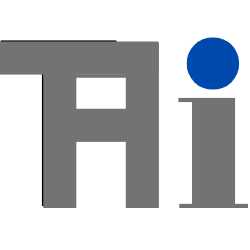The modern job market is undergoing significant shifts, with many workers reevaluating their career paths and considering new opportunities. In India, this trend is also evident as workers seek better opportunities for career advancement and improved work-life balance. Let’s delve into the reasons behind this trend and explore strategies for both employees and employers to navigate this evolving landscape effectively.
Switch Jobs in Search of Better Opportunities
The Quest for Higher Income
A significant driver for job switching is the pursuit of higher income. In India, the cost of living and inflation rates make higher salaries a pressing need for many workers. According to a survey by Michael Page India, 76% of Indian professionals are seeking new job opportunities in 2024, with 45% citing the need for higher income as their primary motivation. Data shows that job switchers tend to increase their salaries more quickly than those who remain in the same position. For example, job switchers in India reported an average salary increase of 20-30%, compared to an average increment of 8-12% for those who stayed in their roles.
Personal Success Stories
There are numerous personal success stories that highlight the financial benefits of job hopping. For instance, one individual reported almost doubling their salary after a year and a half, and subsequently increasing their salary by ₹10 lakhs to ₹20 lakhs annually. These experiences underscore the potential financial gains of strategic job switching. These transitions often lead to increased job satisfaction, enhanced skills, and more significant contributions to their new organizations.
Strategic Considerations for Job Switching

The Importance of Strategic Moves
While the financial benefits of job switching can be substantial, hiring professionals stress the importance of being strategic about job moves. Switching jobs should not be a hasty decision. It requires strategic planning to ensure that each move aligns with your long-term career goals. Evaluate the potential for skill development, job satisfaction, and career progression in your new role. A well-thought-out career strategy can lead to better opportunities, higher positions, and a more rewarding professional life. Rising up the ranks too quickly can make an employee a high-cost target during economic downturns. Therefore, it is crucial to balance career advancement with job stability.
Loyalty and Career Advancement
Many companies expect a level of loyalty that may seem unrealistic, but understanding and playing by these expectations can be beneficial. This often involves appearing committed to a long-term career at a company, even if one’s actual plans differ. Strategic job moves should align with long-term career goals and personal well-being. While loyalty to an employer is commendable, it should not come at the expense of your career advancement. Sometimes, remaining too long in a comfortable but unchallenging position can hinder your professional growth. Assess whether your current employer provides the opportunities for advancement and skill development you seek. If not, it may be time to consider a change.
The Importance of Strategic Job Moves:
https://hbr.org/podcast/2018/12/job-hopping
Balancing Career Advancement with Job Security:
Optimal Job Tenure before Switch

The Role of Job Tenure in Career Development
Determining the optimal amount of time to stay at a job depends on various factors, including career advancement, salary growth, and personal well-being. Survey data consistently shows that the primary reasons for leaving jobs are the desire for higher salaries and the lack of room for growth. Job hopping can often be the quickest way to achieve higher income and more senior roles. Too short a tenure might raise questions about your reliability, while too long might suggest a lack of ambition. Ideally, consider a tenure of 2-5 years before making a move. This allows you to gain valuable experience and demonstrate your commitment while still being agile enough to seize new opportunities.
Generational Perspectives on Job Switching
Different generations view job switching differently. Millennials and Gen Z are more inclined towards frequent job changes to acquire diverse experiences, whereas Baby Boomers and Gen Xers often value longer tenures for stability and loyalty. Understanding these generational perspectives can help you make a decision that aligns with your career stage and personal goals. For instance, younger workers in India, particularly those in the IT sector, are more likely to prioritize advancement opportunities. Despite available promotion opportunities within their current workplaces, many find it easier to leave for new opportunities. Employers actively reaching out and recruiting can provide workers with more negotiating power and better insights into available wages.
Generational Differences in Job Preferences: https://www.pewresearch.org/short-reads/2023/05/22/how-pew-research-center-will-report-on-generations-moving-forward/
Addressing Common Reasons for Job Switch
Better Benefits and Work-Life Balance
Beyond salary, other common reasons for leaving a job include seeking better benefits, escaping a toxic work environment, and achieving better work-life balance. Companies offering superior benefits and a healthy work-life balance can be a strong incentive to switch jobs. If your current role demands excessive overtime or offers inadequate benefits, it may be time to look elsewhere. Better health insurance, retirement plans, and flexible working conditions are significant factors that can improve your overall quality of life. Employers can address these issues by improving workplace culture, offering competitive benefits, and fostering a positive work environment.
Career Aspirations and Personal Growth
Career aspirations play a significant role in job switching. Many workers have specific goals, such as eventually working for themselves or gaining specific skills. If your current job does not align with your career aspirations or fails to provide opportunities for personal growth, seeking a new position that better fits your goals is advisable. Personal development, such as continuing education, professional certifications, and new responsibilities, can significantly enhance your career prospects and job satisfaction.
Employee Benefits and Work-Life Balance: https://www.shrm.org/topics-tools/news/employee-relations/work-life-balance-to-work-life-integration
The Impact of Job Tenure and Economic Factors

Median Job Tenure Trends
The median job tenure for Indian workers has shown variability, influenced by industry and economic conditions. For example, workers in the tech industry may change jobs every 1-2 years, while those in traditional sectors might stay longer. This trend indicates that job hopping is more age-driven than generational. Understanding the current trends in job tenure can provide context for your decision. Research shows that the median job tenure varies by industry and demographics. Staying informed about these trends can help you make a more informed decision. For example, in fast-paced industries like technology, shorter tenures are more common, whereas in more traditional sectors, longer tenures are the norm.
Economic Considerations
Economic factors also influence job switching decisions. The broader economy and job market conditions can impact the ease of finding new jobs. During economic downturns, job stability may be more critical, whereas in booming economies, opportunities for advancement and better pay are more abundant. Evaluating the economic climate can help you determine the best time to make a move, balancing the risks and rewards. Strategic planning and understanding the current economic landscape are essential for making informed career decisions.
Strategies for Navigating Job Switching
Focusing on Skills and Accomplishments
Instead of solely focusing on job tenure or salary, career experts suggest emphasizing skills and accomplishments. This approach ensures that job moves are based on personal and professional growth rather than financial incentives alone. For example, taking a pay cut for a job that offers valuable experience can lead to long-term career benefits.
Balancing Short-Term Gains with Long-Term Loyalty
While job switching can provide quick pay raises, long-term loyalty and tenure often yield significant rewards. The highest-paid individuals within a company are typically those who have demonstrated reliability, sustained performance, and loyalty. Companies value employees who contribute to long-term growth and stability.
Focusing on Skills and Accomplishments: https://www.flexjobs.com/blog/post/transferable-skills/
The Role of Employers in Retaining Talent
Addressing Employee Retention Challenges
For employers, turnover can be challenging and expensive. Investing in employee development and creating a strong learning culture can enhance retention rates. Employers must recognize the factors that drive employees to switch jobs. Addressing these issues proactively can help retain talent. Offering competitive salaries, career development opportunities, and a positive work environment are essential strategies. Regular feedback, recognition, and opportunities for advancement can also enhance employee satisfaction and retention. Companies with robust learning cultures experience higher internal mobility and a healthier management pipeline.
Adapting to Changing Workforce Dynamics
Employers must adapt to the changing workforce dynamics, recognizing that younger generations prioritize career advancement and personal growth. The workforce is continually evolving, and employers need to adapt to these changes. Flexibility, inclusivity, and fostering a culture of innovation can help retain valuable employees and attract new talent. Embracing remote work, promoting diversity, and supporting professional development are critical components of a modern, dynamic workplace. Offering flexible career paths, competitive benefits, and a positive work environment can attract and retain top talent.
Workforce Dynamics and Generational Preferences: https://www.pewresearch.org/short-reads/2023/05/22/how-pew-research-center-will-report-on-generations-moving-forward/
Embracing Job Switching with Empathy

Modern hiring managers, particularly those from millennial and Gen Z generations, often have more empathy for job switchers. Deciding to switch jobs is a deeply personal choice that should be approached with empathy and understanding. Recognize the emotional and psychological aspects involved in making such a decision. Whether it’s for better opportunities, personal growth, or aligning with long-term career goals, switching jobs can be a positive step towards a more fulfilling professional life. They understand that career progression may involve multiple job changes and are more accepting of short-term roles and resume gaps.
Millennial and Gen Z Hiring Managers: https://www.forbes.com/sites/forbeshumanresourcescouncil/2019/12/03/the-millennial-managers-are-here-four-ways-millennials-are-reshaping-the-workplace-again/
Investing in Employee Development:
https://www.shrm.org/topics-tools/tools/toolkits/managing-employee-retention
Creating a Strong Learning Culture:
Conclusion
The job market in 2024 is characterized by a dynamic landscape where employees are actively seeking better opportunities for higher income, career advancement, and improved work-life balance. While job switching can provide significant financial and professional benefits, it is essential to approach it strategically, balancing short-term gains with long-term career goals. For employers, addressing employee retention challenges and adapting to changing workforce dynamics are crucial for attracting and retaining top talent. By fostering a supportive work environment and investing in employee development, both employees and employers can thrive in this evolving job market.


